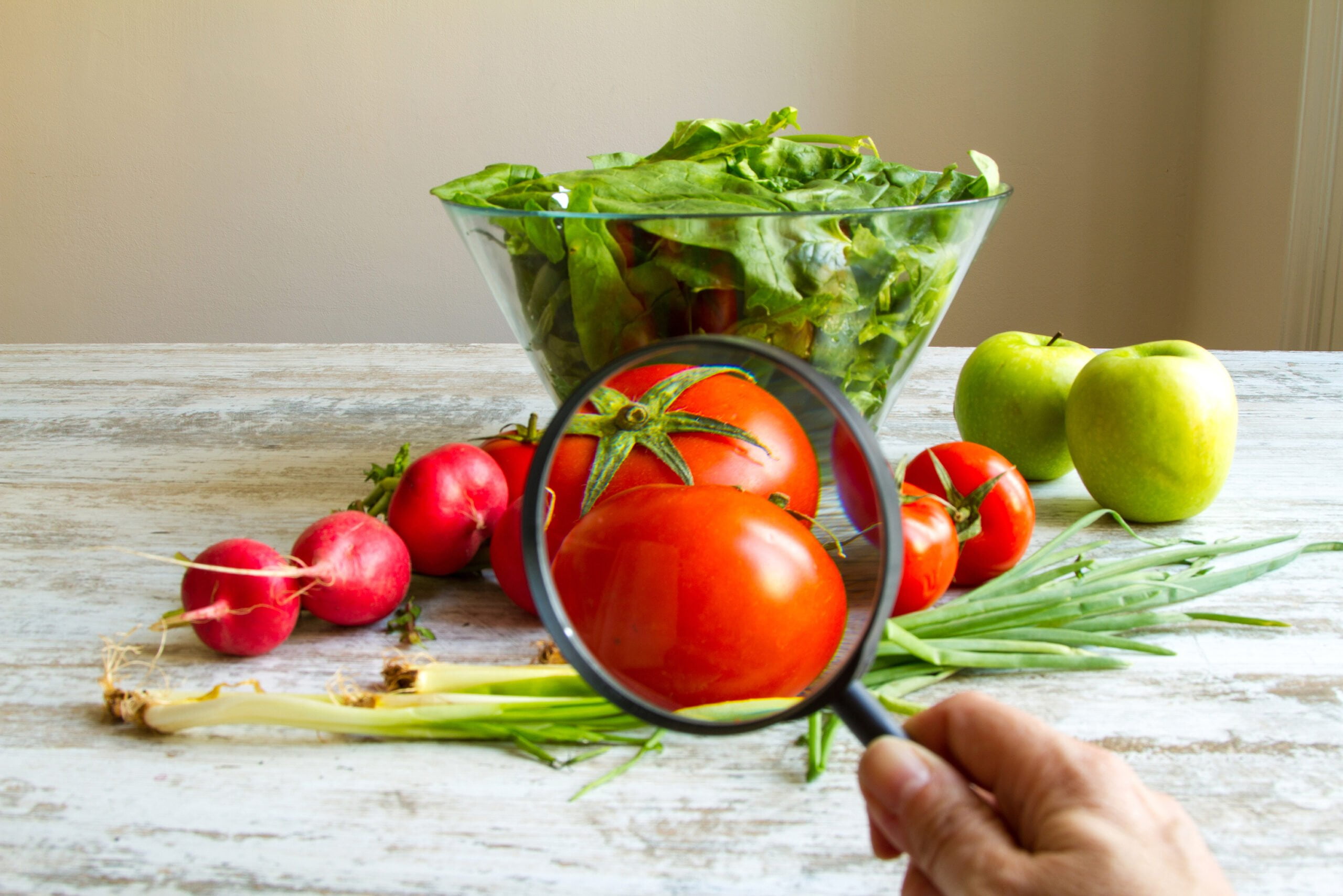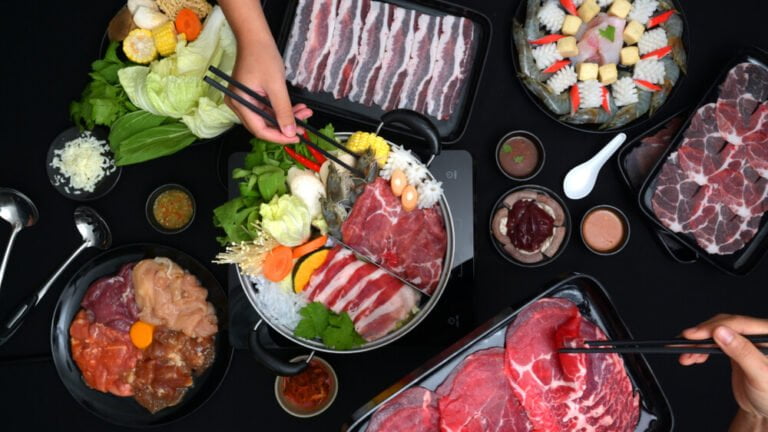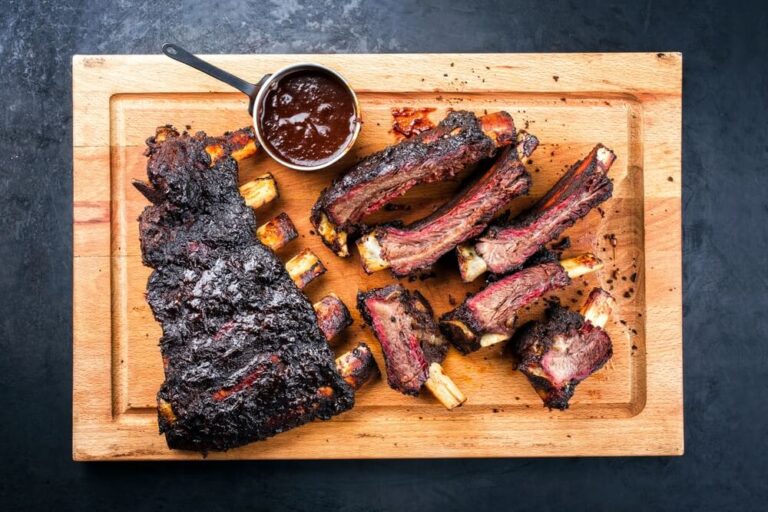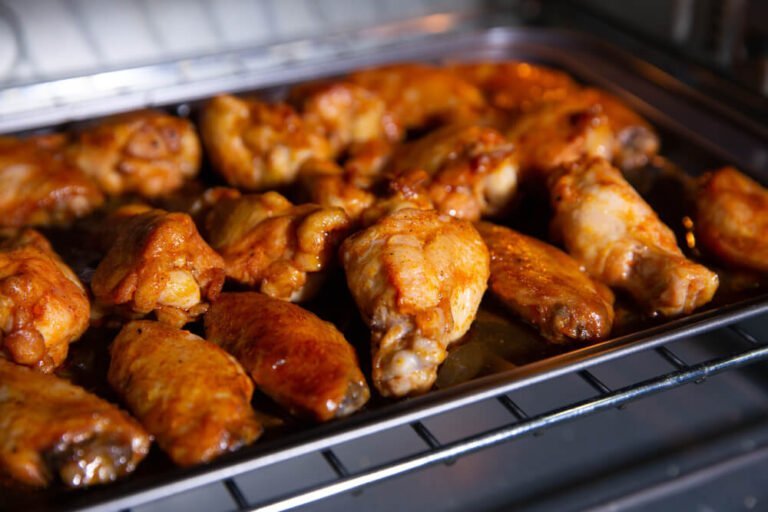With the summer months fast approaching it’s likely more and more Britons across the country will be wiping off the dust from their barbecue grills. But before we hastily grab the pack of sausages and start cooking them over a roaring flame, it’s important to note that each summer get-together brings new fears of potentially biting into half-cooked foods that are worryingly pink on the inside.
That’s why we have put together a few simple tips to improve your BBQ food safety and avoid BBQ food poisoning that could ruin all the fun.
Ways To Avoid BBQ Food Poisoning

According to the Foods Standards Agency, cases of food poisoning drastically increase during the summer months. Food poisoning is something that can be avoided by following hygiene best practices such as avoiding cross-contamination and washing your hands.
Here are a few of Green Olive Firewood’s top tips on ways to maximise your BBQ food safety and stave off BBQ food poisoning!
Cleaning
It’s no surprise that we’re starting with the most important aspect of BBQ safety; cleaning. Effective cleaning, before firing up your summer BBQ, gets rid of bacteria on equipment, surfaces, foods and hands. This helps to reduce the likelihood of harmful bacterial spreading onto the food and decreases the chances of BBQ food poisoning.
Help minimise the risk of germs spreading by:
– Avoiding washing raw meats – Washing raw meats and chicken presents the risk of germs and bacteria splashing onto your hands, utensils and worktops.
– Keep food covered and chilled – It might be tempting to leave your food out to sit in the sun, but this is definitely a recipe for disaster as the warm conditions can encourage bacterial growth in your foods.
– Keeping utensils & serving dishes clean – The most important rule of BBQ safety is to not mix the utensils used to prepare raw food, with ready-to-eat dishes. Always make sure you use different utensils when chopping raw meats and vegetables or wash between uses.
– Washing hands throughout the process – It is important to always wash your hands before and after cooking and eating, especially after handling raw foods or any firelighters.
– Deep clean your grills – Usually during the winter months BBQ grills are left neglected in the shed. During this time germs and bacteria are growing and pose a serious risk of BBQ food poisoning if the grill is not properly cleaned.
Not even the heat from the coals is sufficient enough to kill the bacteria, so make sure to thoroughly clean your grill before use and try to avoid using wire bristles!
Don’t Mix The Raw With The Cooked

When it comes to raw and cooked foods it’s well known that they should never touch each other or share the same plate. When trying to maintain BBQ safety it’s important to wash or clean any utensils or surfaces that raw meat is being transferred to or near with hot, soapy water. Always remember to wash your hands after handling raw meats as it’s very common to transfer bacteria from your fingers into other shared dishes.
Also, consider giving raw foods their own personal space. Have a separate raw and cooked side of a barbecue so that cook foods can be held at a medium temperature until they’re ready to serve, without risking cross-contamination.
Whilst steaks can be eaten rare (as long as the surface has been adequately seared), other meats like chicken, burgers, minced meats and sausages should never be served pink or rare as bacteria can still be in the meat.
Defrosting Meats
Now, you might be eager to take your food out of the freezer and put it straight onto the grill, however, this wouldn’t be a great idea. It’s important to defrost food thoroughly before cooking them on the barbecue. This should ideally be done in the fridge so the food stays cold.
Now, before the day of your BBQ, it’s important to bring meats up to room temperature for at least 20 minutes before cooking. This will greatly improve the cooking experience and allow the meat to cook more evenly, avoiding the chances of cold spots on your food.
However, it is important to not let the food stand out uncooked all day, it only takes bacteria less than an hour to multiply enough to increase the chances of BBQ food poisoning.
Cooking On Charcoal
Next on the list is cooking with charcoal. If you’re using charcoal to cook your BBQ foods it’s important to make sure the charcoals are hot enough and reach the desired temperature before starting the cooking process. Charcoal should be glowing red, with a grey, powdery surface before being used.
Here at Green Olive Firewood, we recommend our selection of natural lumpwood charcoals that boast impressive burn times and have a high heat output, perfect for ensuring an exciting BBQ experience!
“Is charcoal carcinogenic?” This question might be lingering in your mind. Let’s clarify the matter: charcoal itself is not carcinogenic. However, it’s essential to be aware that cooking with charcoal and certain other fuels does come with potential health risks that could affect your BBQ food safety.
It’s important to note that different foods react differently to charcoal cooking, and not all methods of charcoal grilling carry the same risk of cancer. Thankfully, in comparison to gas cooking, most charcoal grilling practices are considered quite safe.
To sum up, while charcoal is not inherently carcinogenic, being mindful of the cooking process and understanding the potential risks will help you enjoy your BBQ experience whilst cooking with charcoals.
Can You Eat Burnt Food?

Picture this: you’re eagerly anticipating the delicious BBQ feast, only to discover that your food has been accidentally burnt! The safety of eating burnt food, especially after it has been grilled, is a common concern when it comes to cooking and BBQ practices. However, there isn’t sufficient evidence to establish a definitive risk associated with consuming burnt food, leaving many uncertainties surrounding its safety.
The key takeaway, however, is moderation. Health experts unanimously agree that maintaining a balanced diet rich in fibre, protein, and healthy fats is crucial. In this context, indulging in the occasional burnt food won’t pose any significant harm to your health (source).
Although the National Cancer Institute acknowledges that eating burnt food is generally considered safe, the topic remains shrouded in some mystery. As a precautionary measure, it’s best to consume burnt foods in moderation until more research sheds light on the matter.
Can You Reheat BBQ Food?

Let’s delve into the final topic of BBQ food safety: Can you safely reheat BBQ foods?
After your barbecue, you might find yourself with some delectable leftovers you’d love to enjoy another day. If that’s the case, it’s crucial to handle these cooked foods properly to minimise the risk of bacterial growth.
To ensure food safety, promptly cover and cool the cooked leftovers within one or two hours, especially on hot days when bacteria reproduction is more rapid. It’s best to consume the BBQ leftovers within 48 hours.
Reheating your BBQ food is a simple process. The key is to make sure the food is steaming hot before consumption or serving. However, be cautious and reheat the food only once, as reheating multiple times is generally not advised due to safety considerations. By following these guidelines, you can safely savour your BBQ leftovers with peace of mind.
